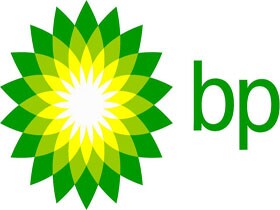
Would Boycotting BP Do Any Good?
Consumer and environmental groups, angry over the spreading oil disaster in the Gulf of Mexico, are calling for a boycott of BP
STANFORD GRADUATE SCHOOL OF BUSINESS—Consumer and environmental groups, angry over the spreading oil disaster in the Gulf of Mexico, are calling for a boycott of BP, the oil giant that owns the well gushing oil onto beaches and marshes. According to research by Phillip Leslie and Larry Chavis, boycotts do in fact work and they're something businesses should be concerned about.
While the debate continues on how to actually boycott BP (the firm doesn't actually own most of the gas stations that have become the focus of consumer anger) the question arises: Would a boycott actually any good.
According to research by Phillip Leslie and Larry Chavis, boycotts do in fact work and they're something businesses should be concerned about.
Leslie, associate professor of strategic management, and Chavis, PhD '06, now a professor at University of North Carolina, studied actual product-level sales data from the American boycott of French wine launched in early 2003 in angry response to France's opposition to the war in Iraq. Their analysis shows a significant 26 percent drop in French wine sales in the United States at the peak of the boycott, and an average 13 percent drop over the six months of the event.
These dramatic findings are in stark contrast to those of most other studies, which have tended to be all over the map, sometimes showing that boycotts have an effect but more often showing small effects or no effects at all—or even, strangely, positive effects. "The problem," says Leslie, "is that all of those studies have examined only changes in stock prices in response to boycotts. But stock prices are influenced by many factors and may not be a reliable indicator in this case."
Chavis and Leslie drew instead on scanner data from supermarkets and large merchandisers—hard measures of weekly consumer purchasing behavior. They confined the study to four cities in which wine consumption is typically large: Boston, Los Angeles, Houston, and San Diego. Extrapolating from the figures obtained, the two researchers determined that French wine companies may have lost a total of $112 million in U.S. wine sales during the boycott.
The team measured the intensity and duration of the boycott by counting the number of newspaper articles that appeared on the topic in the Wall Street Journal, New York Times, and USA Today, as well as plugs for the boycott on the part of news media personality Bill O'Reilly on his TV show The O'Reilly Factor. "In contrast to our expectations," says Leslie, "we didn't notice any particular drop in sales following any of O'Reilly's outspoken commentaries on his show." Leslie adds humorously, "It seems he may have less influence than he thinks." However, front-page newspaper coverage seemed to affect French wine sales more than less prominent reports.
The cheapest and most expensive French wines saw the biggest drop. Leslie speculates this is because purchasers of cheap wine were less invested in the product, and buyers of expensive wine mainly use it for gifts and can easily substitute other expensive brands. The least affected wines were the mid-range varieties. "Drinkers of these wines may be more personally attached to their preferences and therefore less willing to switch," Leslie conjectures.
Although the most serious French wine drinkers may have resisted the boycott to the greatest degree, Chavis and Leslie's study still puts a hole in the classical economic assumption that boycotts don't work because people are either not willing to sacrifice their preferred products or because they believe their small actions won't make a difference. "It's a question that's of increasing interest to a number of Stanford faculty and students who are looking at ‘non-market' issues—how business problems that go beyond regular competition dynamics, such as regulation, lobbying, foreign policy, and so forth, affect the bottom line," says Leslie. "Our study, in particular, documents an example of how government foreign policy can indeed impact business profitability in unanticipated ways."
Companies like Nestlé (widely criticized for marketing breast milk substitutes), Nike (which came under fire for employment practices in Asia), KFC (nailed for alleged mistreatment of chickens), and Target (hassled for not using the words "Merry Christmas" in advertising) all have been assailed by boycotts. They have indeed felt the heat, despite economists' blasé attitude toward media bluster and consumer threats.
Now Chavis and Leslie's study provides some hard figures to demonstrate that the specter of a boycott should generally give managers and executives cause for alarm.
This piece originally appeared in Stanford Business Insights from Stanford Graduate School of Business. To receive business ideas and insights from Stanford GSB click here: (To sign up: https://www.gsb.stanford.edu/insights/about/emails)





